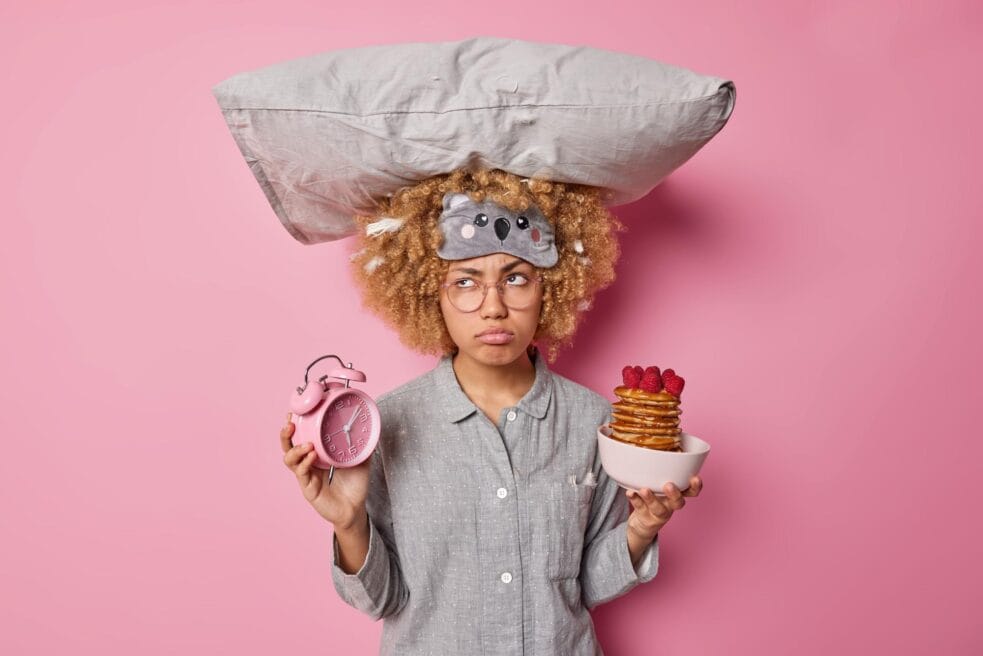At least 1 out of 3 Americans reports having sleep disorder. Many people do not get evaluated for their sleep problems and instead seek out a quick fix in the form of a prescription drug. According to the New York Times, 60 million prescriptions for sleep aids were handed out in 2011, a number that represented a 20 percent spike from 2006.
In this 2-part Q & A with sleep expert Maha Ahmad, MD, MMSc (pictured), Associate Director of the Sleep Disorders Institute in New York, MedShadow explores behavioral approaches to remedying insomnia in Part 1 and asks about the drugs used to treat insomnia and their side effects in Part 2.
Q: How much sleep do most people need?
A: The average adult needs about 8 hours of sleep, however, there are Long Sleepers and Short Sleepers. Short Sleepers may only need 5 hours of sleep in order to feel rested and that’s the right amount of sleep for them. A Long Sleeper may need 10 hours or more of sleep in order to feel rested. Unfortunately in today’s world, it’s hard to manage to get that much sleep!
Q: Before the invention of artificial light, historical documents suggest that people slept in two phases: a first sleep interspersed with an hour or so break in between during which they socialized, made love, studied and reflected, and/or talked about the dreams they just had. That was followed by a second sleep. Both sleeps were about four hours. To be well-rested, do we need to sleep in consecutive hours?
A: No. I think it’s probably fine to sleep in two phases, though I think it is rare and impractical in our culture. In modern industrialized societies, late hours are facilitated by electric lighting, so most do not practice segmented sleep.
Q: Are Americans more sleep deprived than others?
A: I don’t think it’s unique to the United States. There are high rates of sleep deprivation in most industrialized countries.
Q: How does our need for sleep change as we age?
A: As we get older we probably need the same amount of sleep, but unfortunately because of increasing physical and psychological illnesses, we get less sleep. After retirement, lack of structure may foster poor sleep habits.
Q: Are there different types of insomnia?
A: Yes. Most people think insomnia is trouble falling asleep — sleep onset insomnia. But there also can be middle-of-the-night awakening — sleep maintenance insomnia — as well as early morning awakenings. Many people have both trouble falling asleep and trouble staying asleep.
A lot of people never seek treatment because they don’t think that they can change their sleep pattern. Perhaps they have normalized it. Or they may discuss it with a health care provider who isn’t trained in treating sleep disorders. I think the sooner treatment is sought the better; effective treatment will help to prevent a sleep issue from becoming chronic.
Q: What causes insomnia?
A: Lifestyle factors including poor sleep habits or a non-conducive sleep environment contribute to insomnia. Other primary sleep disorders such as obstructive sleep apnea, restless legs syndrome and circadian rhythm disorders may manifest as insomnia. Medical problems such as diabetes, enlarged prostate, cancer, any pain syndrome, heart failure and many other illnesses may disrupt sleep. Menopause is a big culprit in women; hormonal instability and hot flashes may lead to trouble falling asleep and staying asleep. Neurological conditions such as strokes and brain trauma can also disturb the sleep rhythm. Psychiatric conditions such as anxiety, depression, bipolar disorder and substance abuse often create sleep problems. Many prescription medications have insomnia as a side effect.
Q: What are some of those medications?
A: Steroids, bronchodilators, blood pressure medications and stimulants like Ritalin and Adderall can all have insomnia as a side effect. The list is endless.
Q: How does insomnia affect our health?
A: Oh, boy! Most immediately it affects how we feel the next day with cognitive difficulties, such as attention, organization skills, reaction time and mood. Insomnia also may worsen anxiety or depression; it’s also thought to affect our cardiovascular health. Insomnia is linked to many disorders but the important thing is to focus on treating the insomnia and not worrying so much about its long-term consequences. Sleep is important basically.
Q: When should people seek help for their sleep problems?
A: A lot of people never seek treatment because they don’t think that they can change their sleep pattern. Perhaps they have normalized it. Or they may discuss it with a health care provider who isn’t trained in treating sleep disorders. I think the sooner treatment is sought the better; effective treatment will help to prevent a sleep issue from becoming chronic.
Q: So, if you’ve had a week of sleeplessness, difficulty falling and staying asleep, is that when you should seek help or is it after two weeks or three weeks?
A: I can’t give you an exact answer to that because maybe you are having transient insomnia because something stressful just happened in your life, and maybe in a few weeks you’ll be fine. So I think it’s situational.
Q: But not after just a couple nights?
A: No. I think that would probably be a little over careful.
Q: What’s the first line of treatment for insomnia?
A: The American Academy of Sleep Medicine recommends behavioral treatment or specifically cognitive behavioral treatment for insomnia as first line treatment for insomnia.
Q: What is behavioral sleep medicine?
A: Behavioral sleep medicine is basically using cognitive and behavioral techniques to help treat various sleep disorders such as insomnia.
Q: What’s an example?
A: There are a lot of different types of treatments that fall under the ribbon of cognitive behavioral therapy. The most common behavioral treatment that people often hear in the media or read about online is sleep hygiene. That in and of itself is not the most effective treatment but it’s very important for people with insomnia to practice good sleep habits.
Q: What kind of habits?
A: So, for example: keeping a regular sleep/wake schedule, avoiding caffeine, nicotine and alcohol near bedtime, having wind-down time before bedtime, making a cool, dark and comfortable sleep environment all support good sleep. Also avoidance of clock-watching during the sleep period — that helps prevent people getting anxious about not falling asleep immediately or waking up in the middle of the night.
Q: What are the other parts of behavioral therapy?
A: There’s stimulus control which means using the bed only for sleep and intimacy. So things like reading or watching TV should not be done in bed. There’s also sleep restriction therapy where we limit sleep to the average amount of sleep that people are actually getting (determined by having them keep a sleep diary). Over time, as their sleep improves, we slowly increase their time in bed in small increments. Relaxation exercises such as deep breathing, guided imagery, meditation and progressive muscle relaxation are also helpful in behavioral therapy.
Q: Anything else in the therapy department?
A: Some people also may want to seek cognitive therapy to help them restructure their negative attitudes and thoughts around sleep. These negative perceptions often reinforce insomnia. No one treatment is enough in and of itself. A combination of treatments is best; the most effective behavioral treatments are stimulus control and sleep restriction.






